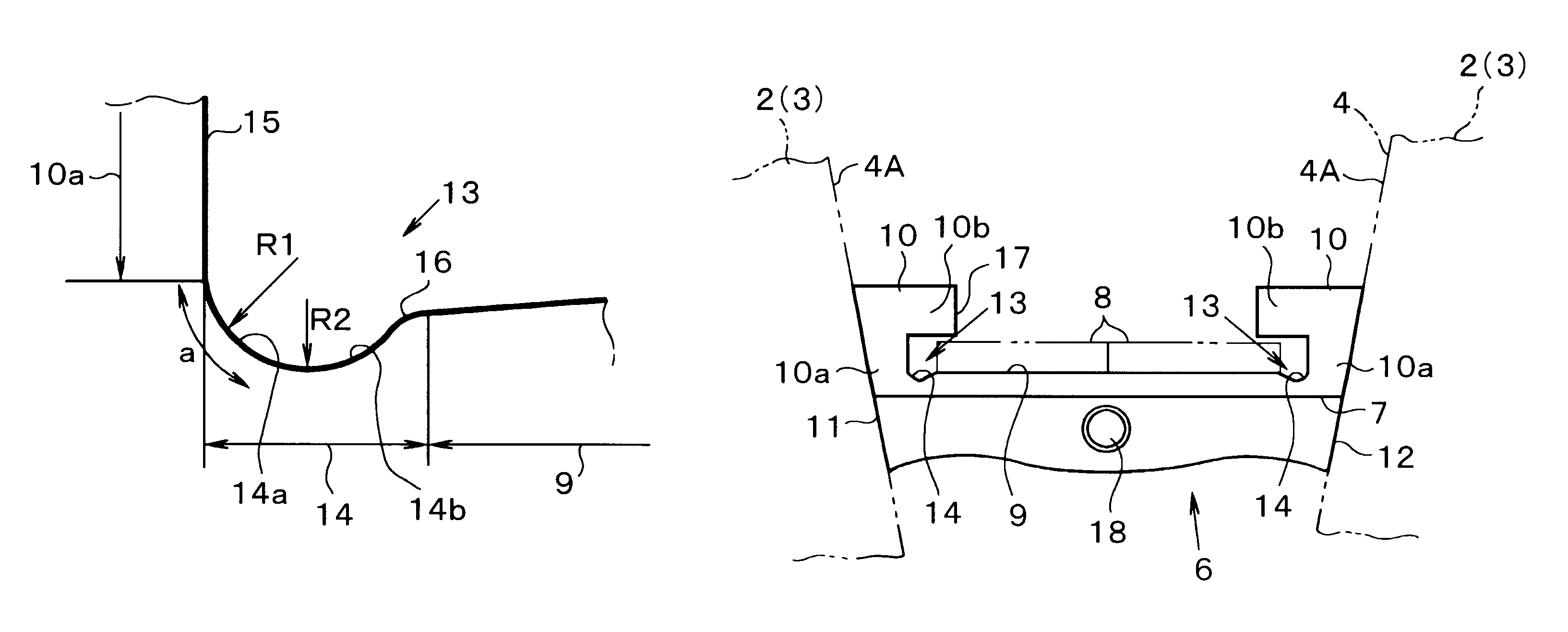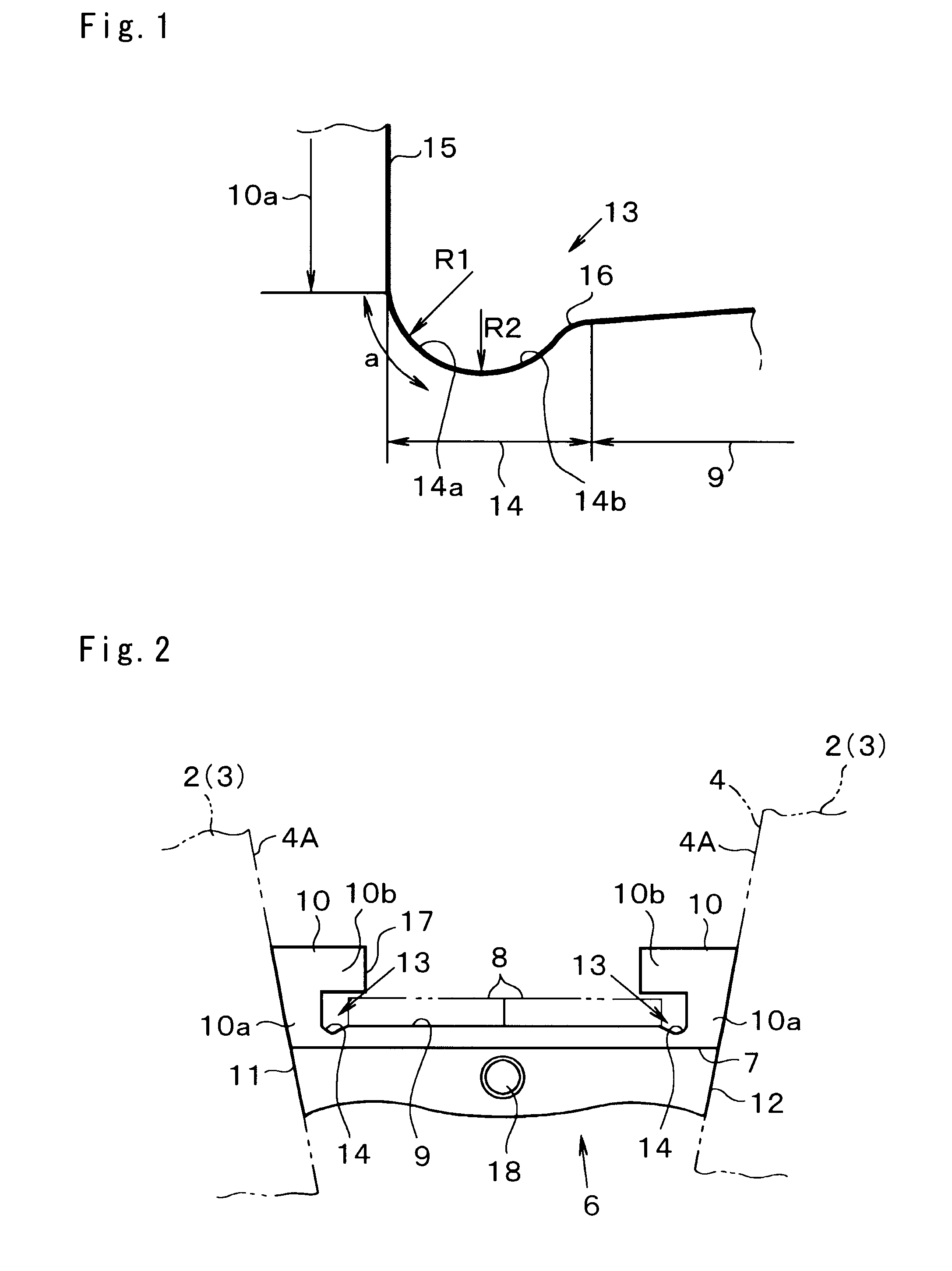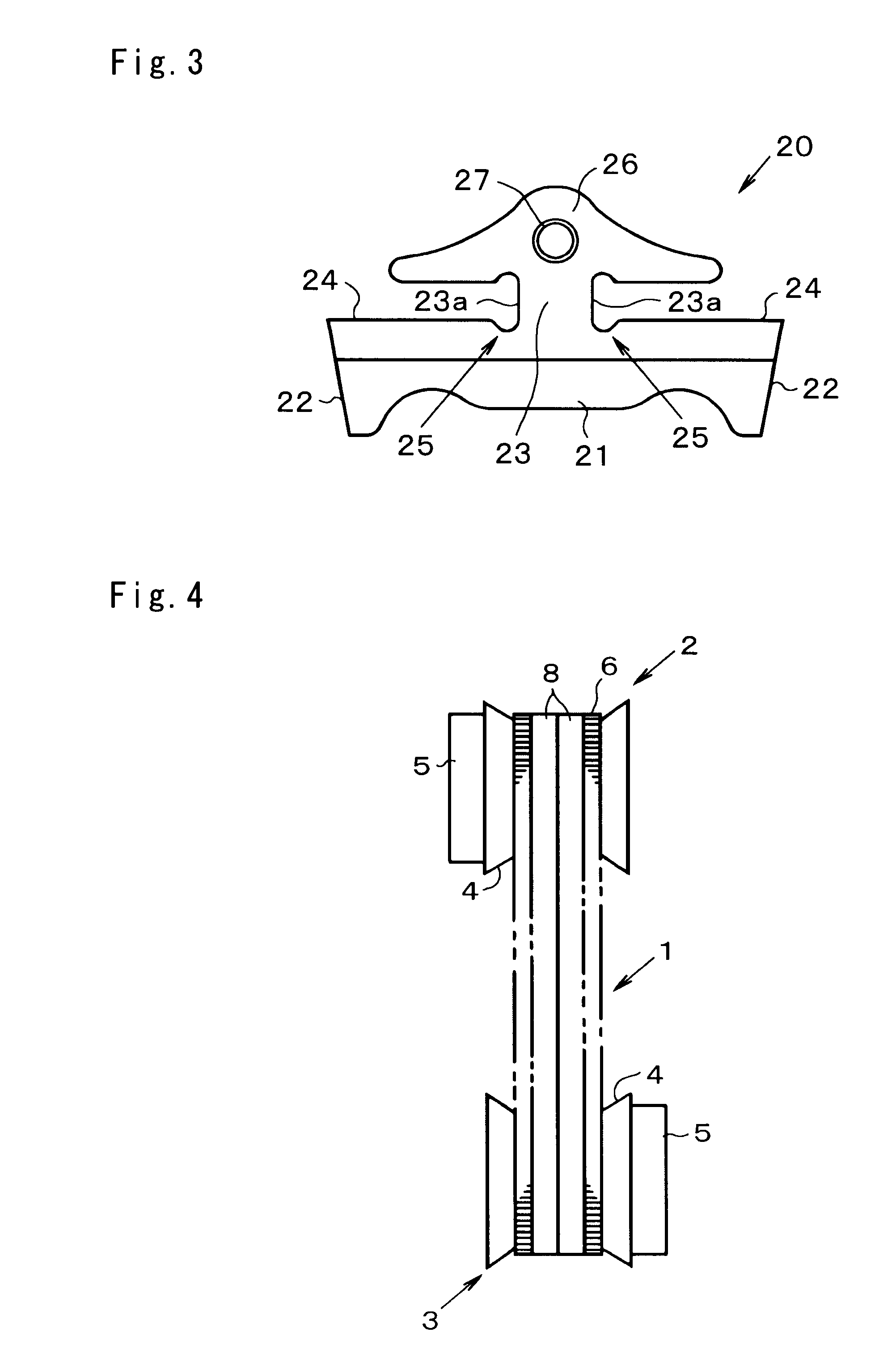Element of belt for continuously variable transmission and belt for continuously variable transmission
a technology of continuously variable transmission and belt, which is applied in the direction of driving belts, belts/chains/gearrings, v-belts, etc., can solve the problems of not revealing a countermeasure against such bending loads to improve strength or durability, and it is difficult to relax stress concentration, so as to achieve the effect of reducing stress concentration and enhancing strength and durability of the neck portion
- Summary
- Abstract
- Description
- Claims
- Application Information
AI Technical Summary
Benefits of technology
Problems solved by technology
Method used
Image
Examples
Embodiment Construction
[0015]Next, examples of the present invention will be explained hereinafter. A belt to which the present invention is applied is adapted to be used in a continuously variable transmission. Specifically, a groove whose cross-sectional shape is V-shaped is formed on an outer circumference of the pulley of the continuously variable transmission, and the belt is applied to the groove of the pulley for the purpose of transmitting torque by a frictional force between the belt and pulleys. For example, as schematically shown in FIG. 4, a belt 1 is applied to a drive pulley 2 and a driven pulley 3 of the continuously variable transmission. Each pulley 2 and 3 comprises a pair of fixed sheave and movable sheave individually having a tapered face and being opposed to each other. Therefore, V-shaped groove 4 is formed between those sheaves, and a width of the groove 4 is varied by reciprocating the movable sheave by an actuator 5 such as hydraulic cylinder.
[0016]The belt 1 thus used is formed ...
PUM
 Login to View More
Login to View More Abstract
Description
Claims
Application Information
 Login to View More
Login to View More - R&D
- Intellectual Property
- Life Sciences
- Materials
- Tech Scout
- Unparalleled Data Quality
- Higher Quality Content
- 60% Fewer Hallucinations
Browse by: Latest US Patents, China's latest patents, Technical Efficacy Thesaurus, Application Domain, Technology Topic, Popular Technical Reports.
© 2025 PatSnap. All rights reserved.Legal|Privacy policy|Modern Slavery Act Transparency Statement|Sitemap|About US| Contact US: help@patsnap.com



